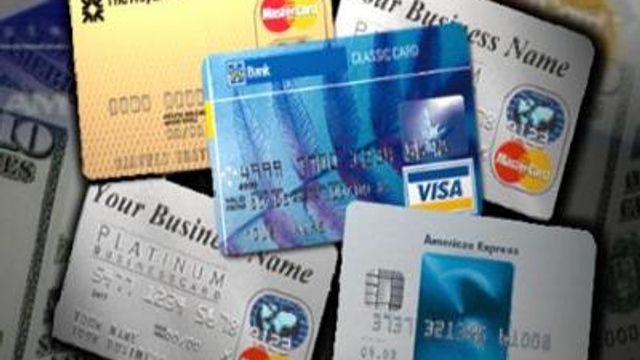New laws affect credit card holders
The credit card industry is in the middle of a major overhaul. Sweeping new laws went into effect last month, and other changes happen in February. What does it all mean for card holders?
Posted — UpdatedThe credit card industry is in the middle of a major overhaul. Sweeping new laws went into effect last month, and other changes happen in February. What does it all mean for card holders?
If you pay with plastic too many times, that plastic might need to be cut into pieces, as was the case with Rebekah O’Connell’s clients.
As a credit counselor with Triangle Family Services, O’Connell said she hopes the new Credit Card Accountability, Responsibility and Disclosure Act will help keep this from happening to other card users.
The law’s first changes happened in August, which requires a 45-day notification of a rate increase. That's up from 15 days. It also allows card holders to in a sense "opt out" of the higher rate.
Also, instead of just 14 days, card issuers now have to mail your bill at least 21 days before it's due.
More changes happen in February. One big one is that interest rates can only be raised with cause such as the end of a promotion or because payments were late.
“With the new rules, any payment above your regular minimum payment must be applied to the highest interest rate on the card, and I love that,” O’Connell said.
The new law also bans what is called double-cycle billing. It's when banks use two months of your bill to calculate interest instead of one.
For example, let's say you had a balance of $1,000 in August, and then $200 in September. Using the Average Daily Balance method and a 12 percent interest rate, the charge on that $200 would be $1.64.
But with double billing, the two amounts are averaged, meaning you pay interest on $600. So the charge jumps to $4.93, three times as much. Come February, that's no loner allowed.
A couple of potential downsides to the act are that some industry experts believe to make up for losses, credit card companies will eventually raise interest rates for all customers and that some people just won't be able to get credit anymore. But most agree C.A.R.D. is an improvement in many ways.
“I may never think that the rules are strong enough when it comes to consumer protection. But trying to make the statements more clear, trying to give people real time to get the payments in, giving people fair notice … should help people better manage their account (and) make better decisions,” O’Connell said.
No matter what the law, O'Connell says there's one rule every credit user should follow: “If you can't afford it, don't charge it.”
The law also impacts younger credit card users. Those under 21 must now have a co-signer to get a card unless they can prove they have the means to make payments.
O’Connell also mentions a couple of downsides to the new law: interest rates are already up ahead of that change taking effect in February. Plus, experts believe banks will again charge annual fees to make-up for lost revenue.
• Credits
Copyright 2024 by Capitol Broadcasting Company. All rights reserved. This material may not be published, broadcast, rewritten or redistributed.






